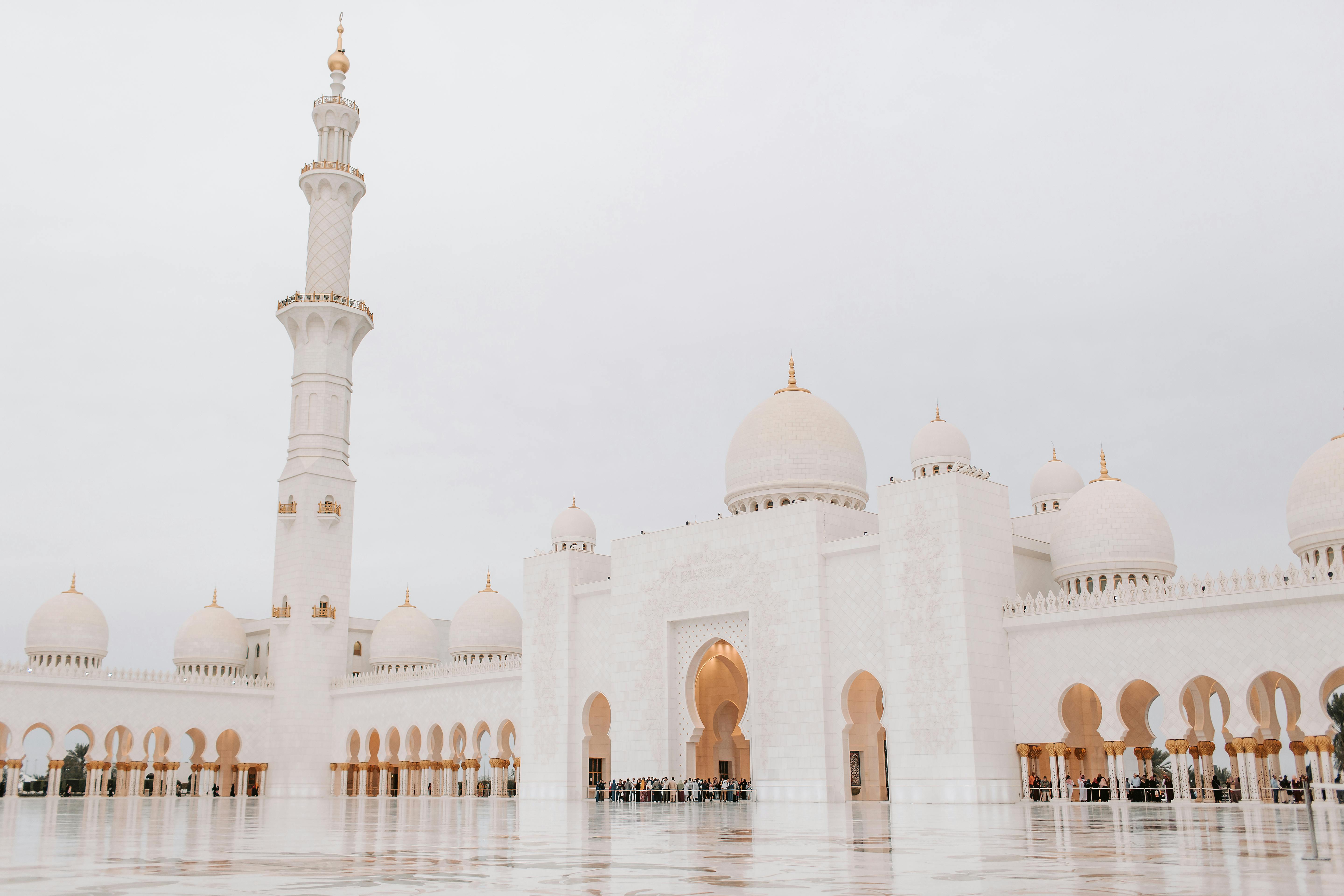Welcome to Islamic Insights!

Explore the beauty and wisdom of Islam with Islamic Insights, your haven for truth, knowledge, and understanding of Islam. Join us on a journey of enlightenment as we uncover the depth of Islamic teachings, values, and traditions. From delving into the profound teachings of Islam to exploring the lives of revered prophets, our platform offers a comprehensive resource for all. Whether you're new to Islam, seeking guidance, or eager to deepen your knowledge, Islamic Insights provides educational resources, and spiritual insights. Let's increase our knowledge, promote mutual respect, and compassion, bridging cultural divides and fostering unity in diversity. Together, let us embark on a journey of discovery, embracing the beauty and richness of Islam's heritage while nurturing an inclusive and harmonious global community.
What's Islam?
Islam is the fastest-growing faith in the world. The word “Islam” is an Arabic word that means “peace, purity, submission, and obedience to the will of Almighty God”. The word Islam comes from the Arabic root word “sa-la-ma”, which means peace. So, the complete meaning of “Islam” is attaining a state of peace by submitting oneself to the will of Almighty God (Allah); and by definition, one who does this is called a “Muslim” (which also comes from the root word sa-la-ma), meaning someone who has submitted to the will of Almighty God.
When did Islam start?
There are many misconceptions about Islam. One of them is that, most people think Islam is a new religion and it came into existence about 1400 years ago in modern-day Saudi Arabia, and Prophet Muhammad (peace be upon him) was the founder of Islam. Well this is not correct, in fact, Prophet Muhammad (peace be upon him) is the last messenger of Islam, numerous messengers came before him and they also preached Islam. Islam came into existence in this world, with the arrival of the first human on this earth. According to the Quran, the first human on this earth was Adam (peace be upon him). Adam was a Muslim because he sumbitted to the will of Allah (God) and he was also the first prophet of Allah. After Adam, Allah sent multiple messengers and scriptures throughout the world at different times to guide the humanity. The core message of all the messengers and scripture was the same, their message was to worship Allah alone and follow them (the messengers). This is mentioned in the Quran in surah (chapter) 16, ayah (verse) 36 where it says the following, “We surely sent a messenger to every community, saying, “Worship Allah and shun false gods.”
Who is Allah?
Allah is the proper name of the One True God. No other entity can be referred to as Allah. Unlike the word "god", which can be pluralized or feminized, Allah remains singular and gender-neutral. While various languages have terms for God or divine beings, Allah stands uniquely singular and beyond gender classification. The Prophet Muhammad (peace be upon him) was asked by his contemporaries about Allah and the answer came directly from Allah Himself in the form of a short chapter of the noble Quran, which is considered the essence or the motto of monotheism. This is surah (chapter) 112 which reads “Say: ‘He is Allah, (who is) One, Allah, the Eternal Refuge. He neither begets nor is born, nor is there to Him any equivalent.’”
Who was Prophet Muhammad ﷺ?
Prophet Muhammad (peace be upon him) was born in Makkah (Mecca) in the year 570. Since his father died before his birth and his mother died shortly thereafter, he was raised by his uncle who was from the respected tribe of Quraysh. He was raised illiterate, unable to read or write, and remained like that till his death. His people, before his mission as a prophet, were ignorant of science and most of them were illiterate. As he grew up, he became known to be truthful, honest, trustworthy, generous, and sincere. He was so trustworthy that they called him the "Trustworthy one". Prophet Muhammad (peace be upon him) was very religious, and he had long detested the decadence and idolatry of his society.
At the age of forty, Prophet Muhammad (peace be upon him) received his first revelation from Allah through the Angel Jibril (Gabriel). The revelations continued for twenty-three years, and they are collectively known as the Quran. As soon as he began to recite the Quran and to preach the truth which Allah had revealed to him, he and his small group of followers suffered persecution from unbelievers. The persecution grew so fierce that in the year 622 Allah gave them the command to emigrate. This emigration was from Makkah (Mecca) to the city of Madinah (Medina), which is about 200 miles to the north.
After several years, Prophet Muhammad (peace be upon him) and his followers were able to return to Makkah (Mecca), where they forgave their enemies. Before Prophet Muhammad (peace be upon him) died, at the age of sixty-three, the greater part of the Arabian Peninsula had become Muslim, and within a century of his death, Islam had spread to Spain in the West and as far East as China. Among the reasons for the rapid and peaceful spread of Islam was the truth and clarity of its doctrine. Islam calls for faith in only one God, Who is the only one worthy of worship.
The Prophet Muhammad (peace be upon him) was a perfect example of an honest, just, merciful, compassionate, truthful, and brave human being. Though he was a man, he was far removed from all evil characteristics and strove solely for the sake of Allah and His reward in the hereafter. Moreover, in all of his actions and dealings, he was ever mindful and fearful of Allah (God).